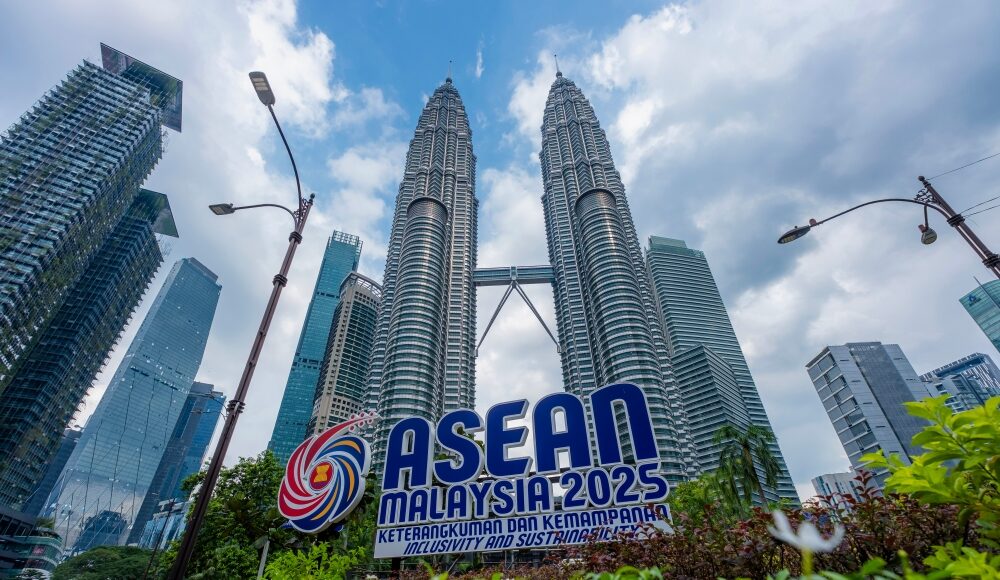MAY 18 — As Malaysia prepares to host the ASEAN GCC and China Summit on May 27 2025, it is equally vital to recover the legacy of four historical figures who embody the spirit of such a convergence: Zu Xi, Ibn Khaldun, Ibn Battuta, and Liu Zhi. Why ?
Though separated by geography and doctrinal traditions, these three polymaths provide a roadmap for today’s scholars, policymakers, and religious leaders striving to bridge the Islamic and Confucian worlds in an increasingly fractured global order.
Thus, their lives offer compelling evidence that Islam and Confucianism are not civilizational strangers.
Rather, they are complementary ethical systems rooted in reason, virtue, and harmony—each committed to shaping a just and knowledgeable society. To examine these thinkers together is not to force equivalences, but to explore synergies.
Zu Xi: Order Through Self-Cultivation
Zu Xi (1130–1200), the Neo-Confucian sage of the Southern Song dynasty, redefined Confucianism with his concept of li (principle) and qi (vital force), emphasizing that moral self-cultivation is the foundation of social order. Education, to Zu Xi, was not mere knowledge acquisition but the shaping of character and the deepening of ethical discernment. This resonates strongly with Islamic conceptions of adab—the integration of manners, learning, and piety.
In Zu Xi’s view, social harmony emanates from personal discipline rooted in metaphysical clarity. His insistence on gewu (the investigation of things) and reflective practice finds parallels in Islamic traditions of ijtihad (independent reasoning) and tazkiyah al-nafs (purification of the soul). Both worldviews reject chaos as natural. They insist on an ordered cosmos governed by divine or moral law.
Ibn Khaldun: History as a Mirror of Civilizational Ethics
Ibn Khaldun (1332–1406), the North African polymath, offered a groundbreaking vision of history as the science of society. In his Muqaddimah, Ibn Khaldun theorized that dynasties rise and fall in cycles tied to asabiyyah (social cohesion) and moral decay.
Like Zu Xi, he was preoccupied with the ethical foundations of governance and the limits of human power.
Where Zu Xi saw order through metaphysical introspection, Ibn Khaldun saw it through empirical observation.
Yet both reached similar conclusions: a just society depends on virtuous individuals and rulers. Ibn Khaldun’s skepticism of urban decadence echoes Zu Xi’s caution against luxury corrupting virtue. Today, in an age of declining trust in leadership across much of the world, these insights are painfully relevant.
Malaysia will be chairing ASEAN in 2025 and taking the helm of both the ASEAN-GCC-China Summit and the Confucian-Islamic Dialogue. — Bernama pic
Their shared emphasis on the moral dimensions of power aligns with the agenda of the upcoming ASEAN-GCC-China Summit in Malaysia. ASEAN’s model of consensus governance, the Gulf’s efforts at modernization without losing moral footing, and China’s invocation of “shared future for mankind” all echo fragments of this legacy.
Ibn Battuta: Witness to Civilizational Crossroads
Ibn Battuta (1304–1369), the legendary Moroccan traveler, was less a philosopher than a witness. His journeys across North and Sub-Saharan Africa, the Middle East, Central Asia, India, and China reveal a world where Confucian and Islamic cultures did not merely coexist—they intersected. His vivid accounts of Tang and Yuan China, and the respect he paid to Chinese administrative sophistication, offer a unique early template of civilizational admiration without domination.
While the modern international system is structured around rigid sovereignties and zero-sum logics, Ibn Battuta’s world was one of porous boundaries and dynamic interactions.
He exemplified what we now call “Track II diplomacy”: observing, recording, and transmitting knowledge through lived experience. In our time of travel restrictions, digital walls, and civilizational anxieties, his life reminds us that movement and dialogue are not luxuries—they are necessities for global understanding.
Liu Zhi (1670-1724): Knowing the Other Key to Inter-Civilisational Understanding
Living in the Qing dynasty Liu Zhi was an exemplar of dialogue scholar-activist with a deep knowledge of China’s religions and philosophies. A Muslim by birth he immersed himself throughout his life in the study of Taoist, Confucian, Buddhist, and Christian scriptures apart from the Quran. His mind is an accomplished synthesis of Confucian and Islamic thought conveying a precious message for the contemporary world.
Toward a New Civilizational Consensus
Bringing Zu Xi, Ibn Khaldun, Ibn Battuta, and Liu Zhi into dialogue may seem anachronistic. But as philosopher Daniel Bell reminds us, traditions must be reimagined, not fossilized. These thinkers represent a counter-narrative to the “clash of civilizations.” They offer a civilizational confluence, grounded in ethical mutuality and intellectual humility.
Indeed, their philosophies are now being revived not merely by academics but by governments looking for alternative models to Western universalism. The Confucian-Islamic Dialogue to be hosted by the International Islamic University Malaysia and the International Confucian Association (ICA) on June 16 2025 will not be a mere academic ritual.
It is an opportunity to reestablish forgotten lines of empathy between East and West Asia—lines once navigated by ships, camels, and scholars.
Why This Dialogue Matters Now
With Malaysia chairing ASEAN in 2025 and taking the helm of both the ASEAN-GCC-China Summit and the Confucian-Islamic Dialogue, the moral weight of regional leadership falls on Putrajaya.
The challenge is not just geopolitical—it is philosophical. ASEAN and the Gulf Cooperation Council (GCC) must collectively affirm that economic growth and technology transfer alone cannot foster durable peace or resilience.
Zu Xi’s emphasis on moral education, Ibn Khaldun’s concern with ethical leadership, Ibn Battuta’s respect for cultural pluralism, and Liu Zhi’s commitment to knowing the civilisational other together form a civilizational grammar sorely needed in the 21st century. As the global order fractures under nationalist rhetoric and hegemonic struggles, it is time to listen to the echoes of those who lived before borders were walls and faith was reduced to faction.
In remembering these thinkers, we are not just paying homage—we are recovering tools for navigating the uncertain world ahead.
* This is the personal opinion of the writer or publication and does not necessarily represent the views of Malay Mail.





